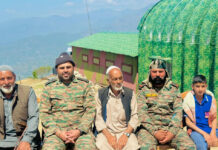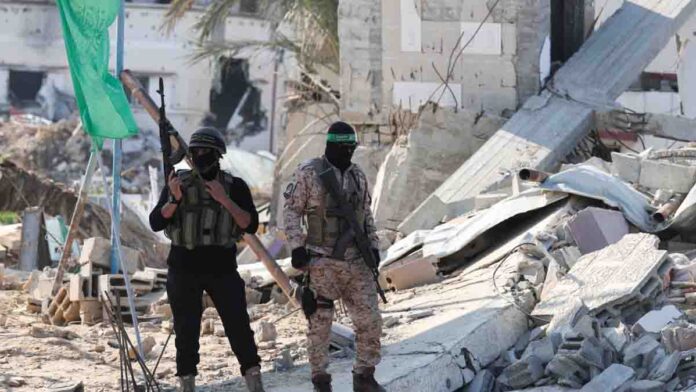AGENCY
NEW DELHI, Jan 31
The grotesque spectacle on January 19 of three female hostages, tortured for 470 days in Gaza’s jails, being paraded through a hostile crowd before their release to the Red Cross, underscores the reality that Hamas bears full responsibility for the war that brought about the suffering inflicted on both Israelis and Palestinians and the devastation of Gaza. The time has come for the global community to confront this truth: Hamas is a roadblock to peace and stability, and its continued rule over Gaza spells ruin for the Palestinians and for the region.
India, too, has faced the grave threat of terrorism from organisations that operate across borders, destabilising peace and targeting innocent lives. Groups like Lashkar-e-Taiba, Jaish-e-Mohammed, and others have left scars on Indian soil through acts of violence, underscoring the universal challenge of combating terror networks. These shared experiences highlight the need for nations to stand united in rejecting terror in all its forms and ensuring that extremist groups cannot hold populations hostage to their agendas.
Orli WeitzmanOrli Weitzman
On October 7, Hamas’s forces launched an unprecedented attack on Israel, bombing cities and villages, burning homes on their inhabitants, raping and maiming, killing over 1,400 civilians, as well as taking more than 250 hostages, including children, babies and the elderly. These actions shattered countless families in a wave of violence that continues to haunt the region. Yet, the suffering does not stop with Israelis. Gazans, too, bear the brunt of destructive governance. While claiming to champion Palestinian liberation, Hamas has prioritised dictatorship and militarisation over the well-being of its people, instrumentalising humanitarian aid as a means of oppression and redirecting resources towards building tunnels and stockpiling weapons.
The humanitarian crisis in Gaza is a direct consequence of Hamas’s misrule which reduced Gaza to a landscape of despair. Not only now but also before the October 7 attack, Gaza’s basic infrastructure lies in ruins, the economy was in a wreck, healthcare was inadequate, and unemployment soared. Hamas’s obsession with armed conflict has trapped Gazans in perpetual suffering, with no vision for a future beyond war. The most blatant illustration is the construction of hundreds of kilometres of terror tunnels, in which Hamas also imprisons and tortures Israeli hostages, but denies entry to Gazan citizens for the purpose of shelter. Hamas’s stranglehold on Gaza forecloses any hope for a better future. For Gazans, this means living under a regime that prioritises violence over prosperity. For Israelis, it means enduring relentless attacks that upend lives and undermine the hope for peace. And for the broader region, Hamas represents a destabilising force that perpetuates cycles of hostility and promotes radical Islamism and Iranian interests.
The international community must recognise that a Gaza ruled by Hamas offers no pathway to peace, only a continuation of conflict.
, suffering and instability for both the Palestinians and Israelis. The removal of Hamas is not merely an Israeli interest; it is a regional necessity. Without Hamas, Gazans and Israelis might begin to envision a future unshackled from perpetual conflict.
It is imperative that the global community acts decisively and supports efforts to dismantle Hamas’s power structure. Hamas’s continued rule guarantees only despair for Gazans, perpetual fear for Israelis and enduring instability for the region. The world must not stand idly by. Now is the time to envision and work towards a future where the shadow of Hamas no longer looms over the Middle East.



























